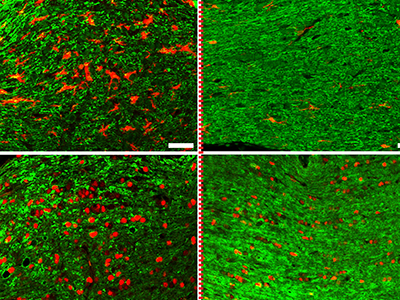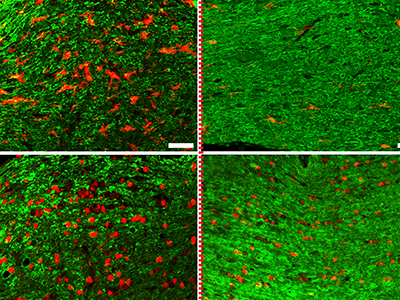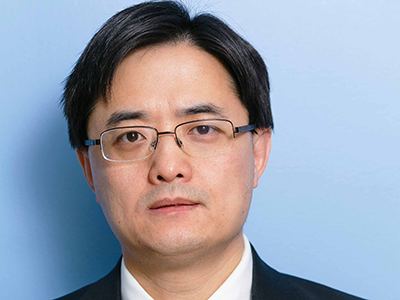Zhu Laboratory
About the Lab
The Yuan Zhu, Ph.D., research group is interested in understanding molecular and cellular mechanisms underlying the development of normal neural stem and progenitor cells as well as tumorigenesis in the nervous system. We are using the mouse as a model system to develop genetic engineering mouse (GEM) tumor models, which recapitulate human cancers both genetically and phenotypically (Zhu et al., Cell 1998; Zhu et al., Science 2002; Zhu et al., Cancer Cell 2005; Zheng et al., Cancer Cell 2008; Wang et al., Cancer Cell 2009; Wang et al., Cell 2012; Kim et al., eLife 2014; Akgul et al. Cell Reports 2018; Li et al., Nature Communications 2020). In addition, we have been focusing on the role of tumor suppressor genes in the development and injury of the nervous system (Zhu et al., Genes and Development 2001; Romero et al., Journal of Neuroscience 2007; Kim et al., eLife 2014).
-
Lab Focus Areas
Neurofibromatosis Type 1 (NF1) High-Grade Glioma and Glioblastoma (GBM)
-
Contact
Yuan Zhu, Ph.D. Scientific Director and Endowed Professor, Gilbert Family Neurofibromatosis Institute yzhu@childrensnational.org
Featured Publications
-
Murine models of IDH-wild-type glioblastoma exhibit spatial segregation of tumor initiation and manifestation during evolution
Li, Y., Li, B., Li, W., Wang, Y., Akgül, S., Treisman, D.M., Heist, K.A., Pierce, B.P., Hoff, B., Ho, C.Y., Ferguson, D.O., Rehemtulla, A., Zheng, S., Ross, B.D., Li, J.Z. and Zhu, Y. PMID: 32699356 Nature Communications 22;11(1):3669. doi: 10.1038/s41467-020-17382-3 July (2020) -
Sox2+ cells in Sonic Hedgehog-subtype medulloblastoma resist p53-mediated cell-cycle arrest response and drive therapy-induced recurrence
Treisman, D.M., Li, Y., Pierce, B.R., Li, C., Chervenak, A.P., Tomasek, G.J., Lozano, G., Zheng, X., Kool, M. and Zhu, Y. Neuro-Oncology Advances (2019) -
Opposing tumor promoting and suppressive functions of Rictor/mTORC2 signaling in adult glioma and pediatric SHH medulloblastoma
Akgül, S., Li, Y., Zheng, S., Kool, M., Treisman, D.M., Li, C., Wang, Y., Gröbner, S., Ikenoue, T., Shen,Y., Camelo-Piragua, S., Tomasek, G., Stark, S., Guduguntla, V., Gusella, J.F., Guan, K.L., Pfister, S.M., Verhaak, R.G. W., and Zhu, Y. PubMed PMID: 29996106 PMCID: PMC6116735 Cell Reports 10;24(2):463-478.e5. doi: 10.1016/j.celrep.2018.06.050 July (2018) -
Transient inhibition of the ERK pathway prevents cerebellar developmental defects and improves long-term motor functions in murine models of neurofibromatosis type 1
Kim, E., Wang, Y., Kim, S., Bornhorst, M., Jecrois, E.S., Anthony. T.E., Wang, C., Li, Y.E., Guan, J., Murphy, G.G., Zhu, Y PubMed PMID: 25535838 eLife 23;3. DOI: 10.7554/eLife.05151 December (2014) -
ERK inhibition rescues defects in fate-specification of Nf1-deficient neural progenitors and brain abnormalities
Wang, Y., Kim, E., Wang, X., Novitch, B.G., Yoshikawa, K., Chang, L.S. and Zhu, Y. PubMed PMID: 22901811 Cell 150(4):816-830 (2012)



